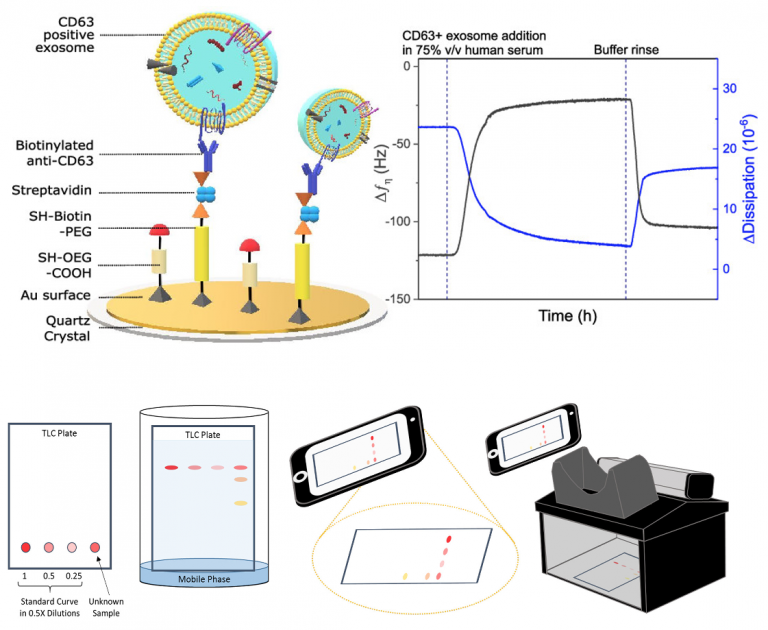Exosomes are endocytic lipid membrane-bound bodies that have been shown to carry proteins associated with cancer and neurodegenerative disease. The ubiquitous presence of exosomes in nearly all biological fluids makes them a promising source of biomarkers for diagnostic assays based on minimally invasive liquid biopsies. In our group, we are developing novel biosensing platforms based on recognition elements tailored by molecular self-assembly and tranduction through acoustic wave and electrochemical read-out mechanisms.
Therapeutic drugs monitoring (TDM) is a promising approach towards personalised medicine that optimises efficacy at minimal side effects. For many drugs, the available TDM routes require sample transport to specialised analytical laboratories which renders this approach often unfeasible due to the high cost, long waiting times and complexity of processing. In our group, we develop novel concepts for bedside drug monitoring technology, enabling optimal dosing in childhood cancer. This work has recently been recognised by an NIHR Product Development Award (Chromadose), where we lead a 21-member consortium of academic, industrial and clinical partners.

Key publications:
Acoustic immunosensing of exosomes using a quartz crystal microbalance with dissipation monitoring (link)
J Suthar, E Parsons, B Hoogenboom, G Williams, S Guldin
Analytical Chemistry, vol. 92, pp. 4082 – 4093 (2020).
A toolkit to quantify target compounds in thin-layer-chromatography experiments (link)
S Ibsen, N Mac Fhionnlaoich, LA Serrano, A Taylor, R Qi, S Guldin
Journal of Chemical Education, vol. 95, pp. 2191 – 2196 (2018).
pH-mediated molecular differentiation for fluorimetric quantification of chemotherapeutic drugs in human plasma (link)
LA Serrano, Y Yang, E Salvati, F Stellacci, S Krol, S Guldin
Chemical Communications vol 54, pp 1485-1488 (2018)
Further infos:
AdReNa group spin-out Vesynta: vesynta.com
NIHR i4i consortium ChromaDose: chromadose.org
 Close
Close

